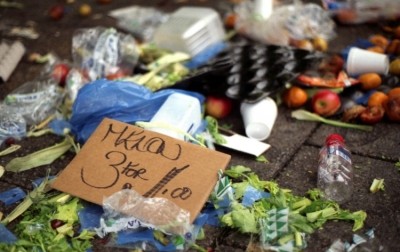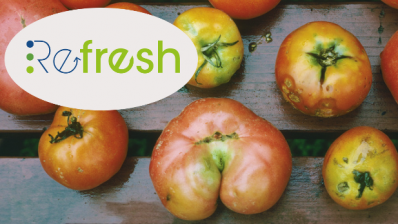Government and supermarkets urged to do more in reducing food waste

According to the Environment Food and Rural Affairs Committee, initiatives such as establishing a national food waste reduction target and the relaxation of rules preventing the sale of 'wonky vegetables’ could be implemented to cut costs.
Supermarkets were also asked to provide data on the amount of food they disposed of.
“We commend Tesco for publishing its food waste data from across the supply chain. Sainsbury's is moving in the same direction, but needs more transparency. The fact that no other retailers have followed their lead shows that a voluntary approach is inadequate,” said Committee chair Neil Parish MP.
“The Government needs to step in and force other major supermarkets to be transparent about food waste. We welcome the will shown by retailers to redistribute surplus food. However, we believe that more must be done. There is a huge amount of surplus food that is currently not being redistributed."
Food waste extent

The report comes as figures in 2015 reveal that £13 billion (€15.4 billion) of food was wasted in the UK, costing the average household £470 (€556) a year—or those with children £700 (€828).
In the long-tem the MPs wanted to see an awareness of food waste start at an early age. They called for the Government to examine how lessons on food and food waste could be incorporated into the curriculum.
Additionally, the Committee called for the incoming Government to continue the current review with The Waste and Resources Action Programme (WRAP) and the Food Standards Agency on food date labelling. They called for guidance for the food industry to be available by the end of the year.
“The review should specifically look at whether there is a need for 'best before' dates at all,” the Committee said.
“Supermarkets have to make improvements to their packaging, such as increasing the use of split and re-sealable packets, to help consumers reduce food waste.”
Food waste is a global issue. According to The Food and Agriculture Organisation of the United Nations (FAO) close to one-third of food produced for human consumption is lost or wasted globally, which amounts to approximately 1.3 billion tonnes per year.
In the UK, it is estimated that 10 million tonnes of food and drink waste arises post-farmgate each year, 60% of which could be avoided.
The Courtauld Commitment
The Courtauld Commitment is a voluntary agreement introduced in 2005 to aid businesses in optimising their overall performance and decrease their environmental impact.
Phase 3 began in 2013 and runs to 2015 with targets evaluated against a 2012 baseline.
The final results for the three-year agreement were published in 2016.
The Courtauld Commitment
The committee report also expressed disappointment that a large number of manufactures had not signed up to The Courtauld Commitment.
Close to 150 food and drink companies had signed up to the commitment introduced by WRAP in March 2016.
These companies include Unilever and Nestlé, retailers Asda, Tesco and Sainsbury and one of the founder signatories Arla Foods UK.
While it is a voluntary commitment, the Committee urged WRAP and the Government to re-double their efforts to increase participation in the Courtauld process by food manufacturers.
Dealing with food waste was not neglected in the Committee’s discussions. The group recommended that the Government work closely with WRAP and Local Authorities to ensure that separate food waste collections were offered to as many households as possible within the UK.
Local authorities too had to look at the opportunities to introduce separate food waste collection when new waste contracts were put in place.
"The best thing we can do is to prevent raw materials, ingredients and products from becoming waste in the first place. If surplus cannot be prevented, then redistribution to people in need or as animal feed is the next best option,” Parish concluded.
“Once it is thrown away the best way of dealing with food waste is to recycle it by sending it to anaerobic digestion or composting. The worst way to deal with it is to send it for disposal through waste incineration without energy recovery or to send it to landfill."

























